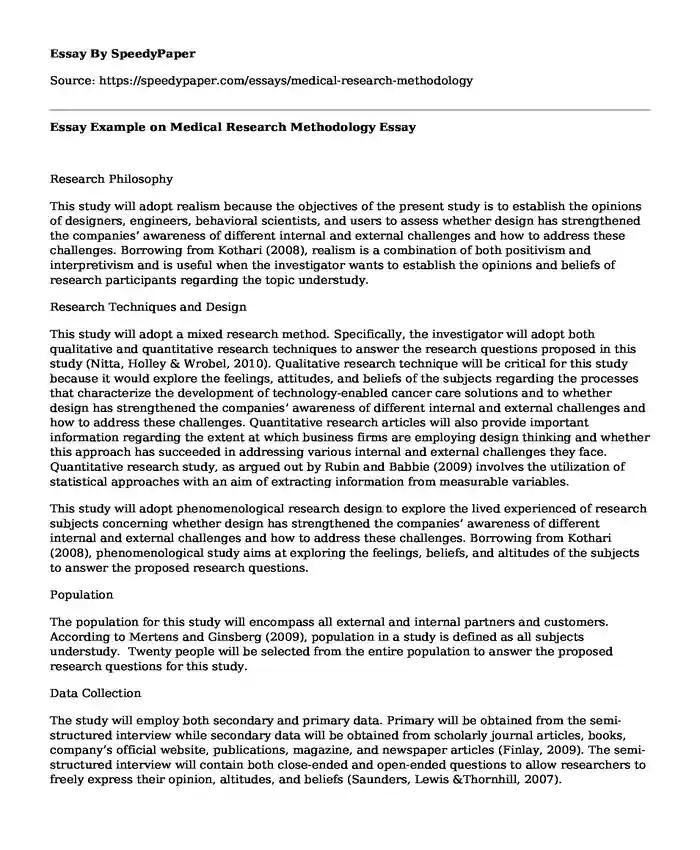Research methodology is a set of principles and procedures that guide the collection, analysis, and interpretation of data in a scientific study. It involves a range of techniques and approaches that are used to collect, analyze, and interpret data in a systematic and objective manner.
One example of research methodology is the use of experiments in psychology. In an experiment, researchers manipulate one or more independent variables and measure the effect on one or more dependent variables. This allows researchers to determine the cause-and-effect relationship between the variables.
For example, a researcher might conduct an experiment to examine the effect of caffeine on memory. In this study, the independent variable is caffeine and the dependent variable is memory. The researcher would randomly assign participants to one of two groups: a control group that does not receive caffeine and an experimental group that does. Both groups would then complete a memory task. If the experimental group performs significantly better on the task than the control group, the researcher can conclude that caffeine has a positive effect on memory.
There are several advantages to using experiments in research. First, experiments allow researchers to control for extraneous variables, ensuring that the results can be attributed to the manipulation of the independent variable. Second, experiments allow for the determination of cause-and-effect relationships between variables. Third, experiments are relatively easy to replicate, which helps to increase the reliability and validity of the results.
However, there are also some limitations to using experiments in research. One limitation is that experiments often take place in artificial settings, which may not accurately reflect real-world situations. Additionally, experiments may involve the use of small, homogeneous samples, which may not be representative of the population as a whole. Finally, ethical considerations may limit the use of experiments in some cases, particularly when the manipulation of the independent variable could cause harm to the participants.
Overall, experiments are a useful and widely-used research methodology that allows researchers to examine the cause-and-effect relationship between variables in a controlled and systematic manner. However, it is important to consider the limitations of this approach and to use a variety of research methods in order to obtain a more comprehensive understanding of the research question.







